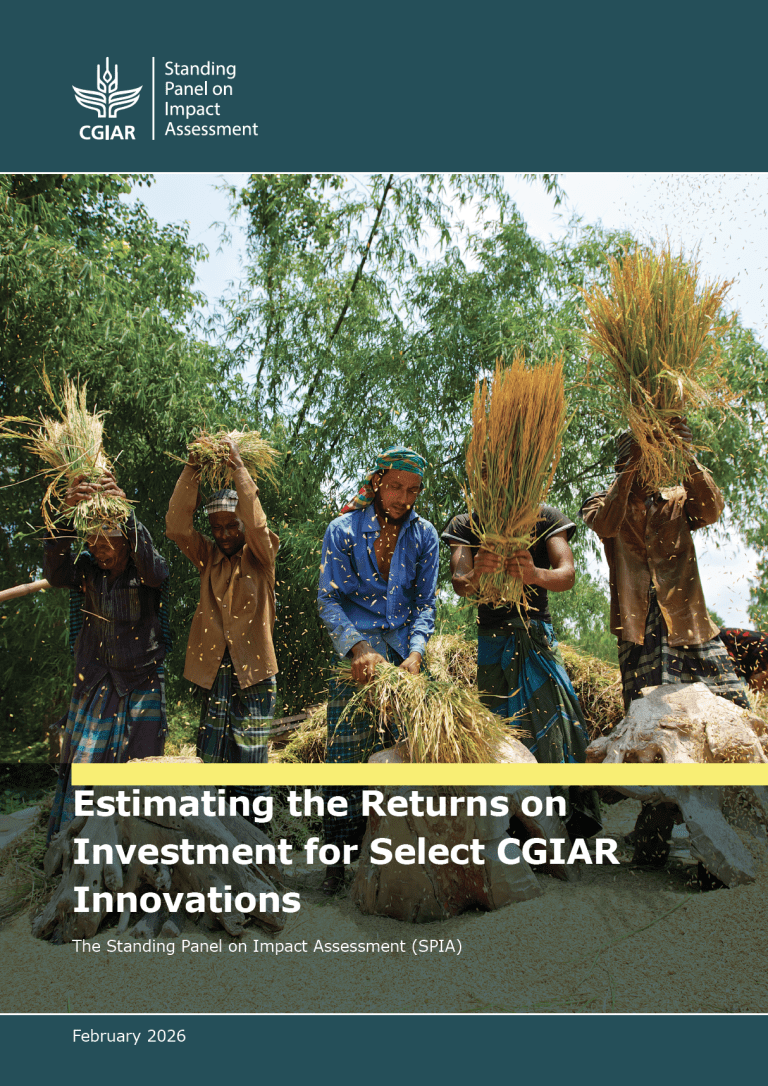SPIA's first country consultation workshop (agenda and participant list here) in October 2019 was a key part of our strategy of working intensively in a few countries to understand the combined contributions of CGIAR research. Uganda and Ethiopia are our current focus - the next two countries will be in Asia, so check back for updates. For the Uganda workshop, our colleagues at the World Bank LSMS-ISA, Makerere University and the Ugandan Bureau of Statistics worked with SPIA to put the event together. We wanted to present our thinking on priority topics for getting better agricultural data in Uganda, potentially including the scaling-up of DNA fingerprinting to accurately identify the specific improved varieties that farmers cultivate.
In preparation, Wanjin Wu (SPIA) and John Ilukor (LSMS-ISA) had consulted with CGIAR researchers. They had identified sweet potato, cassava, beans, banana and maize as being crops with a high degree of CGIAR research input, and for which there is a need for better data on adoption and diffusion of improved varieties. More complex innovations were also discussed - feed and food safety in pig value chains has been researched (ILRI), fruit and fodder tree integration into farming systems (ICRAF), innovation platforms (IITA and ICRAF) and banana-coffee mixed cropping (IITA). By airing these priorities, we could then discuss how variation in agroecology, market access, NGO / government dissemination activity may influence adoption in different parts of the country. We would want to use this information to stratify our sampling effort. Or, if you prefer, as Bho Mudyahoto (Head of Monitoring and Evaluation for Harvest Plus) memorably put it: "Don't look for a donkey in the lake".
Thanks so much to all the participants - an exceptionally useful and enjoyable workshop.
Team photo
(Standing L to R: Wanjin Wu, Paola Mallia, James Stevenson, John Ilukor, Karen Macours (SPIA Chair), Frederic Kosmowski; *Inexplicably* crouching: Solomon Alemu)
The Uganda workshop was the first time we had met face-to-face with our pre-doctoral fellows - Wanjin Wu, Solomon Alemu and Paola Mallia. These three young researchers were recruited in the summer of 2019 and we're so excited to have them on-board. Wanjin is based in Kampala, working with UBOS and the World Bank to integrate our data priorities into the 2020/21 wave of the Uganda National Panel Survey. We asked Wanjin to reflect on the workshop:
As one of the first batch of pre-doctoral fellows at SPIA, I feel so lucky to be working with our team. We are a very international team with members from different countries and based in different regions all over the world. The workshop was a precious opportunity for our team to meet in person, and for me to learn more about my future work.
What touched me the most during the two days of discussion is the passion that scientists have about this country and its people. They are working on various agricultural innovations in livestock, bananas, sweet potatoes, beans, etc. to help more people live a better life without hunger and malnutrition. However, their efforts alone will not be sufficient to achieve this goal. The government is eager to know the kinds of policies that should be implemented in support of the same. SPIA plays a crucial role in linking CGIAR research to policymakers.
I have so much still to learn about the technologies developed and promoted by CGIAR colleagues. But I hope to use my economics training to demonstrate the role that those technologies play, and hopefully to allow policy-making to be informed by data. If we're successful, it would be every bit as important as the work of the agronomists who invent innovations - our data could help facilitate policy change so that more people benefit from them. I hope that every household eventually will have nutrition-dense food to eat, so that no women and children will suffer from a lack of critical micronutrients, such as iron and zinc.
Paola Mallia is based in Paris working with Professor Karen Macours, and Solomon Alemu is based in Addis Ababa working with SPIA Researcher Dr Frederic Kosmowski - look out for blog contributions from them both over the coming weeks.




